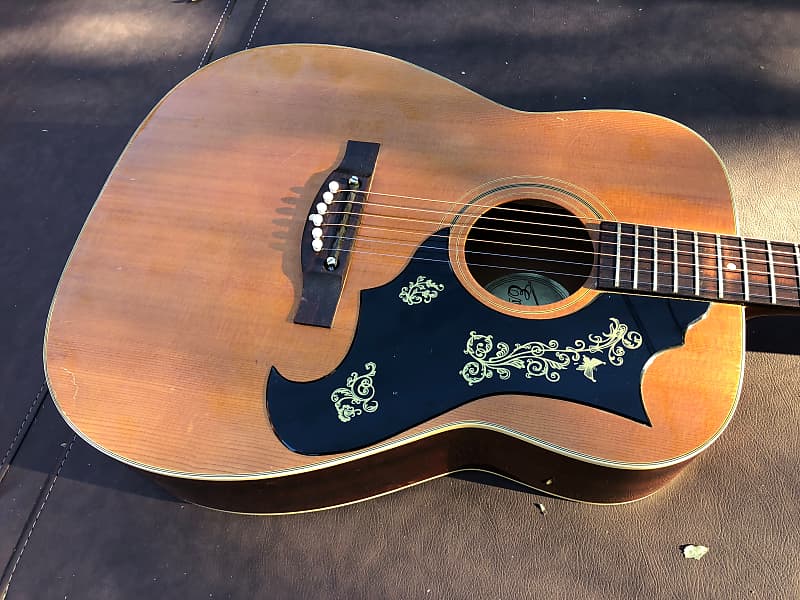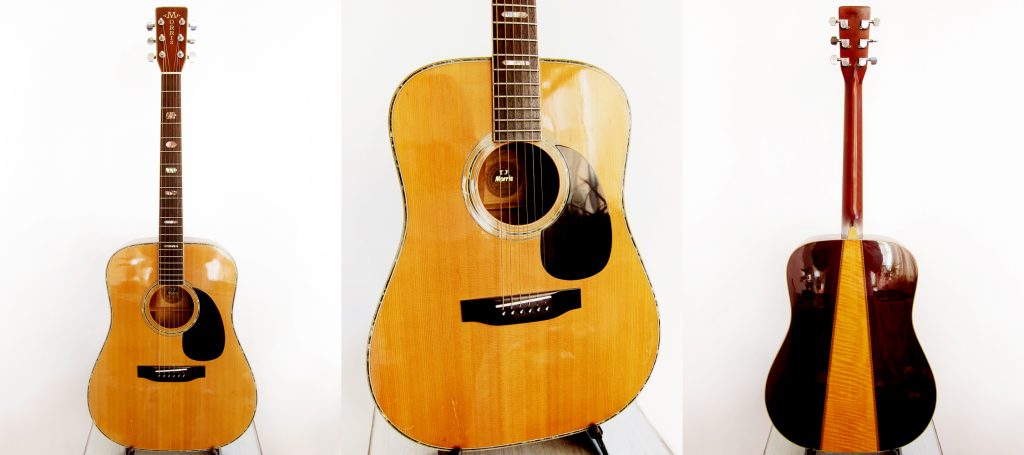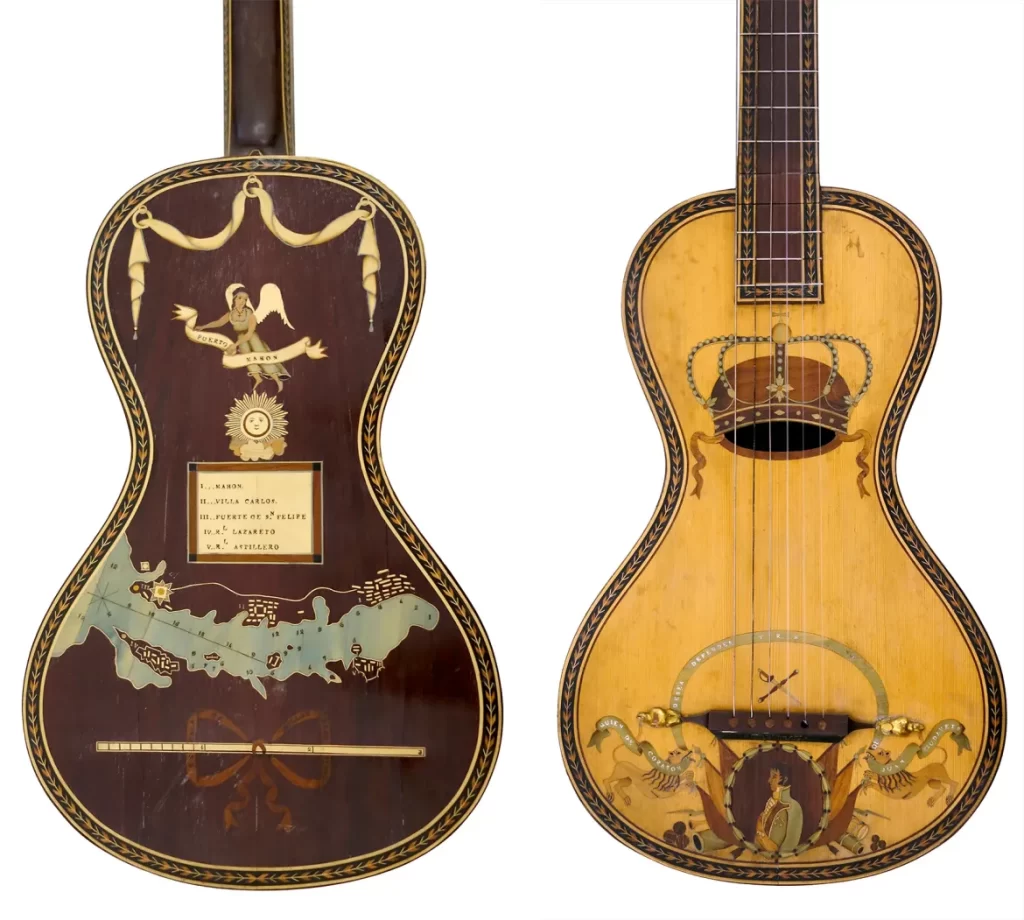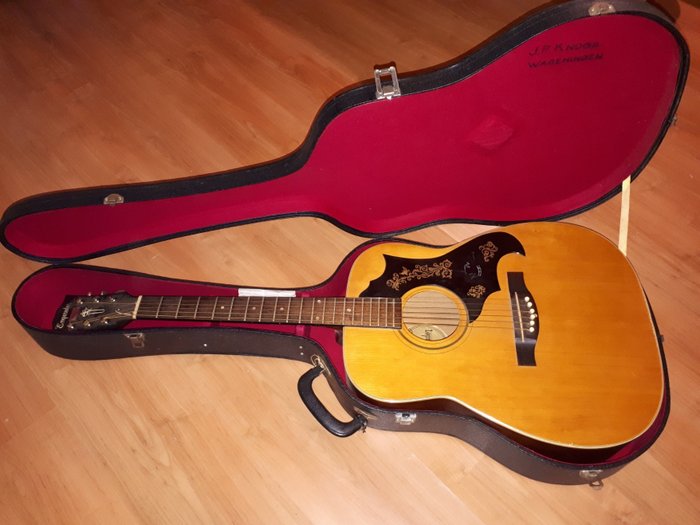Emperador Guitars is a renowned Spanish guitar maker that has played a significant role in the country’s guitar making tradition. With a rich history and commitment to craftsmanship, Emperador Guitars has become synonymous with quality and excellence in the world of guitar making. This article will delve into the beginnings of Emperador Guitars, its unique craftsmanship, the distinctive tone of its guitars, its evolution from traditional to modern designs, its association with Spanish music culture and flamenco, its global expansion strategy, the famous musicians who have played Emperador Guitars, the future of guitar making, and its legacy in preserving the Spanish guitar making tradition.
The Beginnings of Emperador Guitars: A Spanish Legacy
Emperador Guitars was founded by Manuel Rodriguez Sr., a master luthier from Spain. Manuel Rodriguez Sr. came from a long line of guitar makers and learned the art of guitar making from his father and grandfather. He established Emperador Guitars in 1905, with a vision to create instruments that would carry on the rich tradition of Spanish guitar making.
The influence of Spanish guitar making tradition is deeply ingrained in Emperador Guitars. The company’s guitars are crafted using traditional techniques that have been passed down through generations. These techniques include hand carving the soundboard, bracing the top for optimal resonance, and meticulously shaping and finishing each component of the guitar. Emperador Guitars pays homage to the heritage of Spanish guitar making by preserving these time-honored methods.
The Art of Guitar Making: Emperador’s Unique Craftsmanship
Emperador Guitars is known for its commitment to traditional guitar making techniques. Each guitar is meticulously crafted by skilled artisans who have honed their craft over many years. The process begins with selecting high-quality tonewoods, such as spruce for the soundboard and rosewood for the back and sides. These woods are carefully seasoned to ensure optimal stability and tonal qualities.
The attention to detail in Emperador Guitars is unparalleled. From the precise shaping of the neck to the delicate inlay work on the headstock, every aspect of the guitar is meticulously crafted. The company takes pride in its ability to create instruments that not only sound exceptional but also look stunning. Emperador Guitars’ craftsmanship is a testament to the dedication and passion of its artisans.
The Sound of Emperador Guitars: A Distinctive Tone

One of the defining characteristics of Emperador Guitars is their distinctive tone. These guitars are known for their rich, warm, and balanced sound. The combination of high-quality tonewoods, traditional craftsmanship, and meticulous attention to detail contributes to the unique tone of Emperador Guitars.
The choice of tonewoods plays a crucial role in shaping the sound of Emperador Guitars. The spruce soundboard provides a bright and responsive tone, while the rosewood back and sides add warmth and depth. The bracing pattern also influences the guitar’s tone, with Emperador Guitars using traditional fan bracing to enhance resonance and projection.
Craftsmanship is another key factor in creating the distinctive tone of Emperador Guitars. The precise shaping and thicknessing of the soundboard, along with the careful placement of braces, contribute to the guitar’s tonal characteristics. The attention to detail in every aspect of construction ensures that each guitar produces a consistent and exceptional sound.
The Evolution of Emperador Guitars: From Traditional to Modern Designs
While Emperador Guitars has a strong commitment to preserving traditional guitar making techniques, the company has also embraced modern designs and innovations. Over the years, Emperador Guitars has experimented with new shapes, sizes, and materials while still maintaining the essence of its traditional craftsmanship.
The incorporation of new materials and technology has allowed Emperador Guitars to push the boundaries of guitar making. For example, the use of carbon fiber in the construction of the neck and body has resulted in guitars that are more lightweight and durable. This innovation has attracted players who prefer a more modern feel and sound.
Despite these modern advancements, Emperador Guitars remains rooted in its traditional craftsmanship. The company continues to handcraft each guitar with meticulous attention to detail, ensuring that the essence of Spanish guitar making tradition is preserved.
The Role of Emperador Guitars in Spanish Music Culture
Emperador Guitars has made a significant contribution to Spanish music culture. The company’s guitars have been played by some of the most renowned Spanish musicians, including Paco de Lucia, Vicente Amigo, and Tomatito. These musicians have helped popularize the sound of Emperador Guitars and have showcased their versatility and tonal qualities.
Emperador Guitars has also played a crucial role in flamenco music, which is deeply rooted in Spanish culture. The distinctive tone and responsiveness of Emperador Guitars make them ideal for flamenco music, where speed, precision, and expressiveness are essential. The company’s guitars have become synonymous with the fiery and passionate sound of flamenco.
Emperador Guitars and Flamenco: A Perfect Match
Emperador Guitars has a long-standing association with flamenco music. The company’s guitars are highly sought after by flamenco guitarists for their ability to produce the characteristic percussive and vibrant sound required for this genre.
One of the unique features of Emperador Guitars that make them ideal for flamenco is their lightweight construction. Flamenco guitarists often require a guitar that is responsive and easy to play, allowing for quick and intricate fingerstyle techniques. Emperador Guitars’ guitars are designed with this in mind, providing the perfect balance of playability and tonal qualities.
The choice of tonewoods also contributes to the suitability of Emperador Guitars for flamenco music. The spruce soundboard provides the necessary brightness and projection, while the rosewood back and sides add warmth and depth to the sound. This combination allows flamenco guitarists to achieve the distinctive sound that is characteristic of the genre.
Emperador Guitars Goes Global: The Company’s Expansion Strategy

While Emperador Guitars has deep roots in Spain, the company has also expanded its reach beyond the country’s borders. In recent years, Emperador Guitars has made a concerted effort to establish a presence in the global market. This expansion strategy has presented both challenges and opportunities for the company.
One of the challenges of expanding a traditional guitar making business is maintaining the high standards of craftsmanship while increasing production. Emperador Guitars has addressed this challenge by investing in modern machinery and technology that can help streamline the production process without compromising on quality. This has allowed the company to meet the growing demand for its guitars while still upholding its commitment to traditional craftsmanship.
The global market also presents opportunities for Emperador Guitars to reach a wider audience and showcase the beauty and quality of Spanish guitar making. By expanding its distribution network and participating in international trade shows, Emperador Guitars has been able to introduce its guitars to musicians and enthusiasts from around the world.
The Famous Emperador Guitars Owners: From Paco de Lucia to John McLaughlin
Emperador Guitars has been played by some of the most influential musicians in the world. From legendary flamenco guitarist Paco de Lucia to jazz fusion pioneer John McLaughlin, these musicians have recognized the exceptional quality and sound of Emperador Guitars.
Paco de Lucia, often considered one of the greatest flamenco guitarists of all time, played Emperador Guitars throughout his career. His virtuosic playing and innovative approach to flamenco music helped popularize the sound of Emperador Guitars and solidify their association with the genre.
John McLaughlin, known for his groundbreaking work in jazz fusion, has also been a loyal user of Emperador Guitars. His unique blend of jazz, rock, and Indian classical music requires a guitar that can handle a wide range of styles and techniques. Emperador Guitars’ versatility and tonal qualities make them an ideal choice for musicians like McLaughlin.
Emperador Guitars and the Future of Guitar Making
Emperador Guitars is committed to preserving traditional guitar making techniques while embracing new technology and materials. The company recognizes the importance of innovation in order to stay relevant in a rapidly changing industry.
Emperador Guitars plans to continue incorporating new materials, such as carbon fiber, into its designs to enhance playability and durability. The company also aims to leverage advancements in technology to improve the precision and efficiency of its manufacturing processes.
Despite these advancements, Emperador Guitars remains dedicated to preserving the essence of Spanish guitar making tradition. The company understands that its unique craftsmanship and commitment to quality are what set its guitars apart from others in the market.
The Legacy of Emperador Guitars: Preserving the Spanish Guitar Making Tradition

Emperador Guitars plays a crucial role in preserving the Spanish guitar making tradition. The company’s commitment to traditional craftsmanship ensures that the artistry and techniques passed down through generations are not lost.
By continuing to handcraft each guitar with meticulous attention to detail, Emperador Guitars ensures that the essence of Spanish guitar making tradition is preserved. The company’s dedication to quality and excellence serves as a testament to the rich heritage of Spanish guitar making.
Conclusion
Emperador Guitars has a rich history and a significant presence in the world of guitar making. With its commitment to traditional craftsmanship, high-quality materials, and attention to detail, Emperador Guitars has become synonymous with excellence in Spanish guitar making. The distinctive tone of its guitars, their association with Spanish music culture and flamenco, and their global expansion strategy have solidified Emperador Guitars’ place in the industry. As the company looks towards the future, it remains dedicated to preserving the Spanish guitar making tradition and passing it on to future generations.
